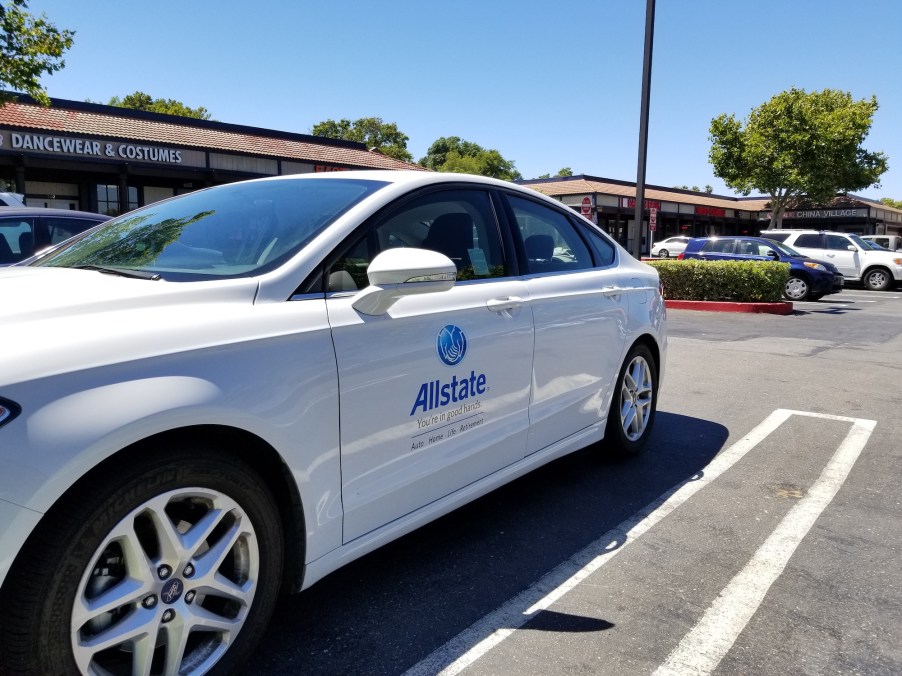
Teen Drivers Are Worse for Your Car Insurance Costs Than a DUI
Auto insurance is a necessary but costly expense. And if you’re frugal, you’re constantly trying to find ways to keep recurring expenses like auto insurance low. To do so, it’s helpful to know which events trigger a rate increase so that you can avoid them or offset them as best as possible. Three events can add as much as $1,000 or more to your annual car insurance cost: a DUI, a drop in your credit score, or adding a teen driver to your policy.
A DUI’s impact on your car insurance premiums
It’s understandable why a DUI would affect your car insurance premiums. Driving impaired is reckless and can increase your risk of getting into an accident. An insurance company has to cover the costs of your accident. If you make a reckless choice to drive under the influence, the company could raise your rate to hedge against the risk of your getting another DUI.
Coverage rate increases vary by state, age, and time between driving infractions. Nevertheless, drivers can expect to pay an average of $1,662 extra each year after a DUI conviction, according to CNBC. Rates for young drivers are generally more expensive because they’re considered riskier, so a young driver with a DUI conviction might pay significantly more than the above figure. Moreover, many insurance companies require drivers to maintain a clean driving record for a certain period before they qualify for pre-DUI rates.
Insurers check your driving record when they renew your policy. If you have been convicted of or expect to be convicted of a DUI, it’s best to tell your insurance company immediately. Not doing so will not help you avoid a rate hike. However, an insurer may decide to drop you as a policyholder for not being forthright. And obtaining coverage from a new insurer with a DUI on your record is sure to be expensive.
A drop in credit score also increases insurance premiums
Insurers use your credit history as one of several factors in determining your car insurance rate, albeit indirectly. Your credit history is generally used to help generate an auto insurance score, which firms use to predict whether a driver will cost the firm money in the future. It’s not the only component of your auto insurance score. Insurance companies also use your driving record and history of claims to compile your score and assess your potential risk.
Like your credit scores, your auto insurance score comes from three providers: the Fair Isaac Corporation (FICO), LexisNexis, and TransUnion. These scores range from 150 to 997 and vary according to formulas that each provider establishes. Generally, a credit score of 700 or higher will help you get the best auto insurance score and the best coverage rates. However, a significant drop in your credit score from credit defaults, evictions, or bankruptcies can drag your credit score down enough to affect your auto insurance score and premium negatively.
Such a drop can cost you $1,351 on average, CNBC reports. That’s a hefty amount and gives you one more reason to pay your bills — auto-related or not — on time.
Insuring a teen driver
However, you’ll face the largest premium hike by insuring a teen driver. They’re far more prone to auto accidents than adults. According to the CDC, teens are three times likelier than drivers over 20 to be involved in a car accident. Teens are 1.5 times likelier to get into a crash after they’re first licensed. They’re also likelier to engage in risky behaviors such as speeding, texting while driving, and not wearing seat belts.
Despite your sterling driving record and long history with your insurance company, adding a teen driver to your policy can add a whopping $1,883 to your annual premium. That’s $200 more than you’d pay for a DUI. And, of course, that number increases if you’re insuring more than one teen. Though teen-driver insurance rate hikes vary by state and company, they’re usually higher than other premium increase-triggering events. A speeding ticket, lapsed insurance coverage, or collision won’t usually cost you as much as adding your teen to your policy. However, when combined with related fines and court costs, you could pay as much or more.
You can take a few steps to offset the insurance premium rate hikes for adding your teen driver: (1) Buy them an ultra-safe car. It may not look as cool as they’d like, but a well-designed vehicle with top safety ratings and advanced safety features can help your child avoid accidents, which can further drive up your premium costs. (2) Buy an older car, which might be cheaper to insure. (3) Increase your deductible to reduce your premium. And (4) consider bundling your auto insurance with other forms of insurance if you’re not already doing so.


